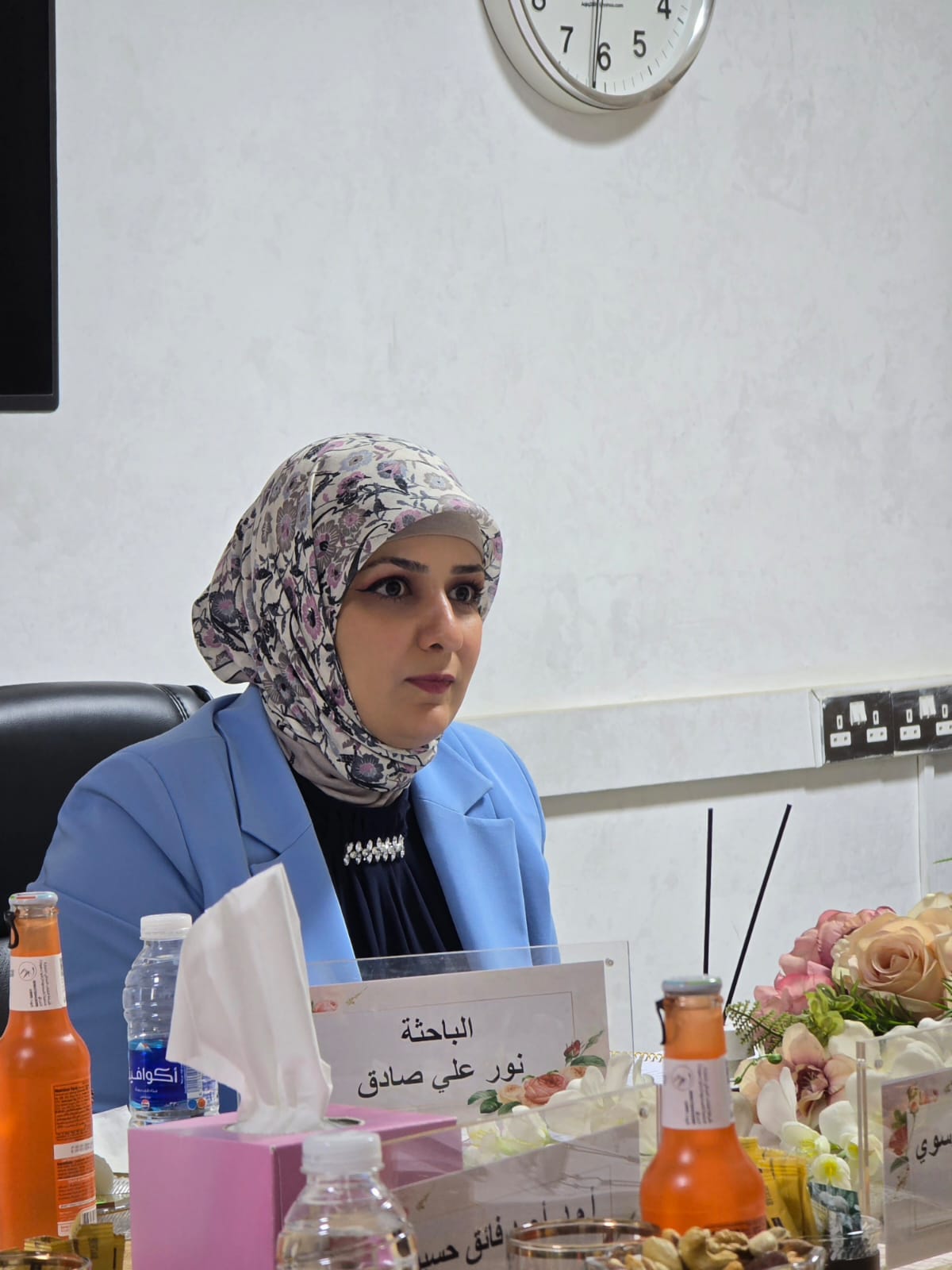Visitors: 25379271 Views
Done By: Department of Biomedical Engineering
Post Date: 2024-09-25
Last Browse: 2025-07-03

On Wednesday, September 25, 2024, the Department of Biomedical Engineering held a PhD defense for the PhD candidate and lecturer in the same department, Assistant Lecturer Noor Ali Sadiq, on her dissertation titled: "Diagnosis System to Assess Diabetic Retinopathy Using Fundus Images." The defense committee was chaired by Professor Ra’ad Sami Fayyad, an Emeritus Professor at the College of Engineering, Al-Nahrain University, and included the following members: Prof. Abbas Mahdi Al-Mousawi from the College of Medicine, Al-Mustansiriya University / National Center for Diabetes Research and Treatment, Assistant Professor Dr. Hadeel Qasim Wadi from the Department of Biomedical Engineering, Al-Nahrain University, Assistant Professor Dr. Ahmed Faiq Hussein from the Department of Biomedical Engineering, Al-Nahrain University, and Assistant Professor Dr. Abeer Abdul Ameer Mohammed from the College of Medicine, Al-Nahrain University. The dissertation was supervised by Prof. Dr. Ziad Tariq Al-Dahan from Al-Bayan University and Prof. Dr. Suzan Amanah Rattan from Al-Kindi College of Medicine, University of Baghdad. The dissertation was scientifically evaluated by two reviewers: the first was Assistant Professor Dr. Muhannad Kadhim Saber from the College of Engineering, Al-Khwarizmi, University of Baghdad, and the second was a professor from the College of Science, University of Baghdad. Linguistic review was conducted by Assistant Lecturer Dr. Salman Majid Salman from the College of Engineering, Al-Nahrain University. The research aims at the early diagnosis of diabetic retinopathy using deep learning models applied to fundus images of Iraqi patients. Three datasets of images were used, including a local dataset collected from Ibn Al-Haytham Educational Eye Hospital, which is the first dataset for diabetic retinopathy in Iraq and is currently available on a global repository (GitHub). Two other datasets were globally sourced from reputable data platforms. All data were processed and entered into three deep learning algorithms. The dissertation was accepted, as it fulfilled the requirements for earning a PhD degree.